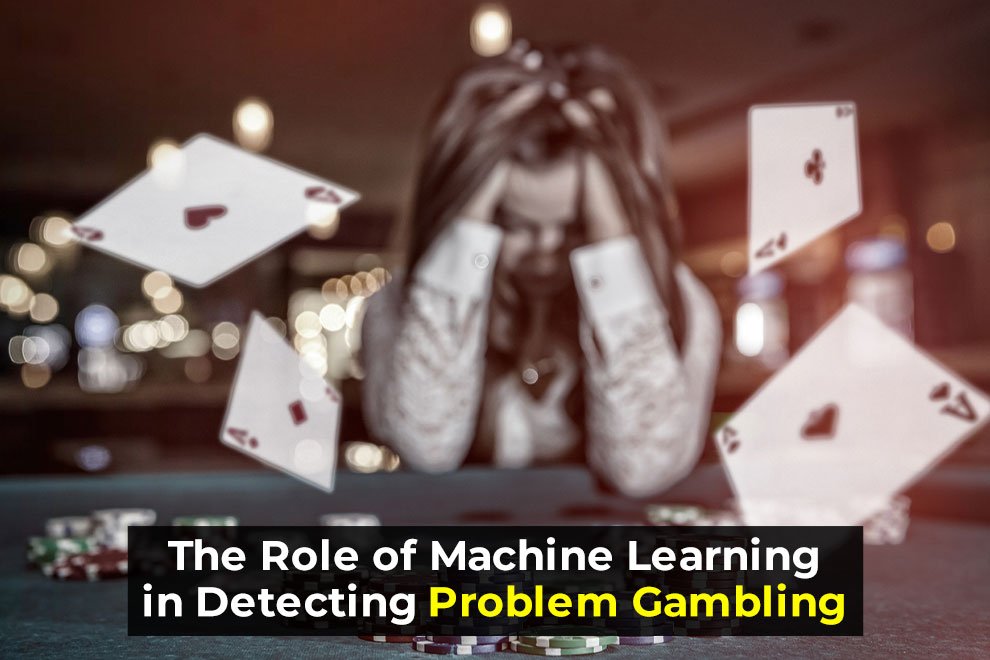Gambling has become more accessible than ever thanks to online platforms. While this brings entertainment to millions, it also increases the risk of problem gambling. Identifying and helping at-risk players is a growing challenge for casinos and regulators.
This is where machine learning comes in. It offers a powerful way to monitor behavior, spot patterns, and flag warning signs before gambling becomes a serious problem.
In this article, we explore how machine learning is being used to detect problem gambling and how it’s shaping the future of responsible gaming.
What Is Problem Gambling?
Problem gambling, also known as compulsive gambling or gambling addiction, is a behavior where a person is unable to control their gambling, despite negative consequences. It affects not only the individual but also their family, work life, and mental health.
Common Signs of Problem Gambling
- Frequent and excessive betting
- Chasing losses with bigger bets
- Ignoring limits and self-exclusion tools
- Borrowing money to continue gambling
- Emotional distress linked to gambling outcomes
Recognizing these signs early is key to preventing long-term harm. That’s where technology can make a difference.
How Machine Learning Works
Machine learning is a form of artificial intelligence that uses algorithms to analyze data, learn patterns, and make predictions. Unlike traditional programming, it improves over time as it processes more information.
Learning From Behavior
In the context of online gambling, machine learning tools can analyze user behavior—such as time spent playing, amount wagered, and reaction to wins or losses—to detect irregular patterns. These systems don’t rely on fixed rules; they adapt as new data comes in.
Applying Machine Learning to Gambling Data
Online gambling platforms collect vast amounts of data from every player interaction. This includes login times, betting history, deposit frequency, session lengths, and game choices.
Identifying Risky Behavior
Machine learning models can process this data to spot behaviors linked to problem gambling. For example:
- Sudden increases in deposit amounts
- Playing for unusually long periods without breaks
- Constant chasing of losses
- Ignoring or disabling responsible gambling tools
- Frequent attempts to reverse withdrawal requests
By comparing a player’s behavior to known patterns of problem gamblers, these models can flag high-risk users in real time.
Benefits of Using Machine Learning in Problem Gambling Detection
Machine learning offers several key advantages in the fight against gambling addiction.
1. Early Detection
These systems can spot subtle changes in behavior before they escalate into serious issues. Early warnings allow casinos to intervene quickly with helpful resources or restrictions.
2. Real-Time Monitoring
Unlike manual checks, machine learning operates around the clock. It can monitor thousands of players at once and provide instant alerts.
3. Personalized Insights
Machine learning doesn’t just apply one rule to everyone. It can adapt to individual player profiles, providing a personalized risk score based on a user’s habits, preferences, and activity patterns.
4. Reduced Human Bias
Traditional methods rely on human judgment, which can be subjective. Machine learning offers data-driven insights, minimizing guesswork or oversight.
How Casinos Use This Technology
Many regulated online casinos are already using machine learning to promote responsible gambling. Here’s how it’s being implemented:
Automated Risk Scoring
Players receive a risk score based on their behavior. If the score reaches a certain level, the system may automatically trigger alerts or actions.
Targeted Messaging
At-risk players may receive pop-up messages encouraging them to take a break, set deposit limits, or read about responsible gambling.
Temporary Account Restrictions
In more serious cases, the system may recommend suspending or limiting an account until further review.
Human Review and Support
While machines do the heavy lifting, flagged cases in crypto casino games are often passed to trained staff. These teams can reach out to players directly and offer help, including access to counseling services or self-exclusion programs.
Ethical Considerations and Privacy
Using AI to monitor player behavior raises important questions about data privacy and user rights.
Transparency
Casinos must be transparent about how data is collected and used. Players should know that their activity may be monitored for responsible gambling purposes.
Data Protection
All personal and behavioral data must be securely stored and processed in compliance with privacy laws like GDPR.
Responsible Use
Machine learning tools should be used to protect players—not to exploit vulnerable behaviors for profit. Regulators play a key role in ensuring ethical practices.
The Future of Responsible Gambling With AI
Machine learning is still evolving, and its role in online gambling will only grow stronger.
Advanced Behavioral Models
Future systems may integrate emotional analysis, device usage patterns, or even biometric data to detect problem gambling more accurately.
Industry Collaboration
Casinos, regulators, and researchers are beginning to work together to share data and improve detection models. This collaboration will lead to more effective solutions.
Player Empowerment
Machine learning could also be used to create tools for players themselves—apps that track personal behavior, offer feedback, and suggest safer habits.
Final Thoughts
Machine learning is revolutionizing the way we detect and manage problem gambling. By turning player data into actionable insights, it allows for earlier intervention, smarter monitoring, and a more personalized approach to support.
While it’s not a complete solution, it’s a major step toward safer, more responsible online gambling environments. With careful regulation and ethical use, machine learning can help strike a better balance between entertainment and protection.
If you’re an online gambler, know that these systems exist to support you—not to watch you. And if you’re showing signs of risky behavior, there’s help available—often just a click away.
Also Read: Digital Gaming Decoded: Understanding the Mechanics Behind Online Casinos











